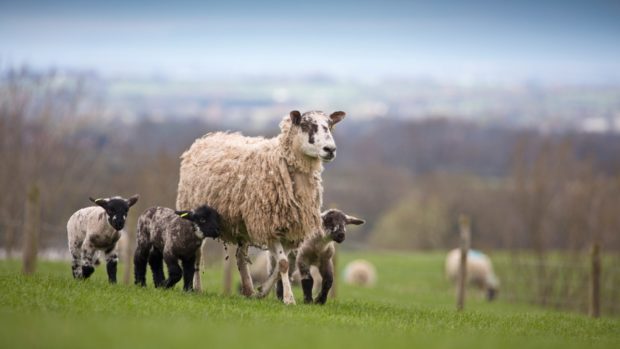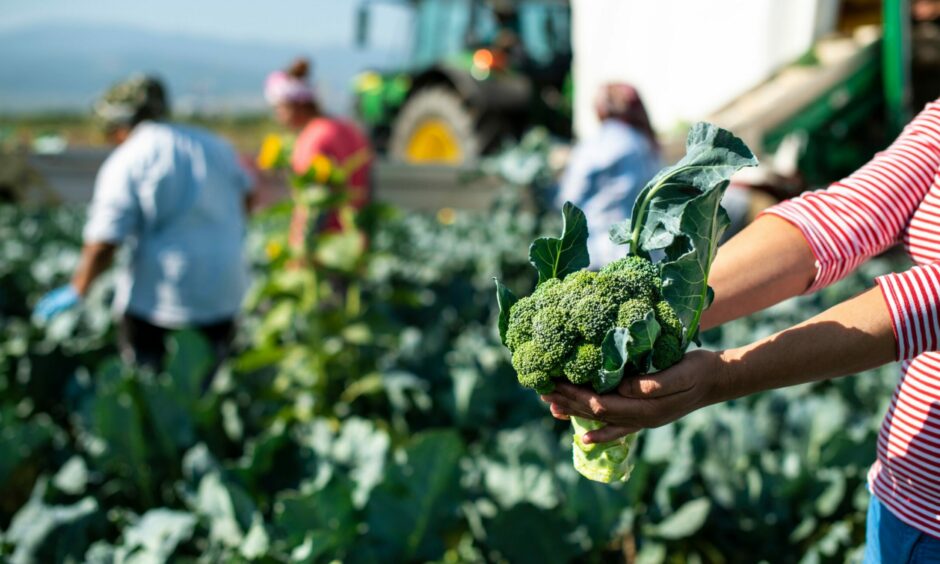The appalling situation in Ukraine is having a profound impact on global supply chains, with farmers facing an unprecedented rise in input costs due to scarce availability of feed, fertiliser, and fuel.
We are yet to see the full implications of this on food security, but what is clear, is the significant strain this places on the cashflow of farming enterprises facing rising costs of production.
What we cannot, and should not do is have a knee-jerk reaction and abandon the collective progress we are making in addressing the climate and biodiversity challenges.
However, there are opportunities right now to support Scotland’s producers in other ways at this difficult time.
The Scottish Government should urgently consider what support can be provided in the form of no, or low interest loans to the agricultural sector, which could be an advance on the Basic Payment Scheme.
This would help farmers – many of whom are ‘all in’ with crops in the ground and new livestock being born – cover the rise in input costs until they are able to generate income from livestock and grain sales in the back end, as well as give the confidence to continue the production cycle.
This year’s Basic Payment Scheme applications should be processed and delivered as soon as possible, with empathy towards farmers and the pressures on them as they complete their applications at this busy time of year.
Ukraine is a significant exporter of conventional and organically certified wheat, maize, and sunflower oil – some of which is used to feed livestock in the UK.
The Scottish and UK Governments need to work together to temporarily source feed from alternative providers such as the US and South America, adjusting tariffs where necessary, whilst simultaneously applying a dispensation on the percentage of organic feed that producers must include in their ration.
Nothing should be off the table when it comes to taking decisive action to ease pressure on producers.
It is time for processors and retailers across the supply chain to step up to the plate, working closely with producers to ensure the challenges and rewards are shared equally, whilst also reducing food waste (The Grocer estimates that UK supermarkets throw away at least 100,000 tonnes of edible food annually, and some commentators suggest the figure could be closer to 200,000 tonnes).
There are reports of some vegetable crops being destroyed as they are unable to find a market, which will cover the cost of harvesting. This seems perverse.
Working with European and other international partners, governments must find a solution to the rising cost of inputs in the short term, which could make food production unsustainable.
The agricultural industry is working hard to transition to more sustainable methods of production for the long-term, but it will take time to implement these measures which is not helped by a lack of progress on post-CAP reform.
These additional challenges and pressures come at what is already a particularly busy time of year for Scotland’s farmers and land managers, with the majority hoping to finish spring sowing against the weather, lambing and calving in full swing, and completing their SAF (Single Application Form) before the application window closes on May 16.
With this in mind, look out for your neighbours and don’t be afraid to pick up the phone or call in on friends.
RSABI, a charity supporting people in Scottish agriculture has a helpline open 24 hours a day: 0300 111 4166.
They can provide emotional, practical, and financial assistance in times of need, and the service is available to anyone previously, or currently involved in farming, crofting, and occupations connected to agriculture in Scotland.
On a more positive note, we are heartened to be looking forward to a “back to normal” show season, which is so important for rural Scotland both socially and for finding business solutions.
- Paul Richardson is a policy adviser at Scottish Land & Estates.


